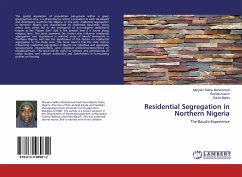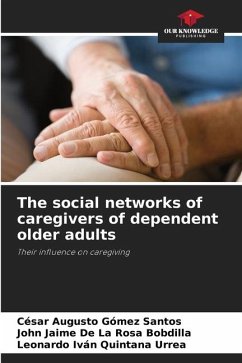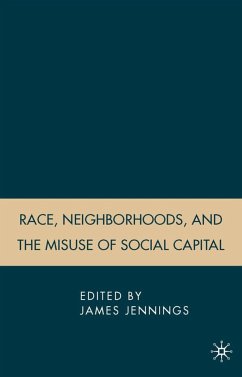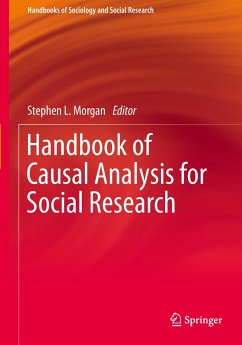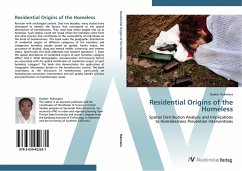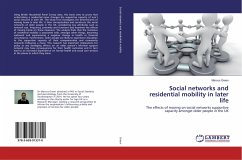
Social networks and residential mobility in later life
The effects of moving on social networks supportive capacity amongst older people in the UK
Versandkostenfrei!
Versandfertig in 6-10 Tagen
62,99 €
inkl. MwSt.

PAYBACK Punkte
31 °P sammeln!
Using British Household Panel Survey data, this book aims to prove that undertaking a residential move changes the supportive capacity of one's social network in later life. The study first investigates the determinants of moving home in later life. It then conceptualises and constructs the social networks of older people in the UK, considering key attributes such as network size, frequency, proximity and functions and examines the effects of moving home on these measures. The analysis finds that the incidence of residential mobility is associated with, amongst other things, becoming widowed a...
Using British Household Panel Survey data, this book aims to prove that undertaking a residential move changes the supportive capacity of one's social network in later life. The study first investigates the determinants of moving home in later life. It then conceptualises and constructs the social networks of older people in the UK, considering key attributes such as network size, frequency, proximity and functions and examines the effects of moving home on these measures. The analysis finds that the incidence of residential mobility is associated with, amongst other things, becoming widowed and experiencing a negative change in health or financial circumstance. Furthermore, older people are likely to experience disruption to the supportive capacity of their companionship and community networks following a move. This research has important implications for policy as any damaging effects on an older person's informal support network may have consequences for their health outcomes and in turn lead to an increased dependence on formal health and social care services at the places to which they move.




